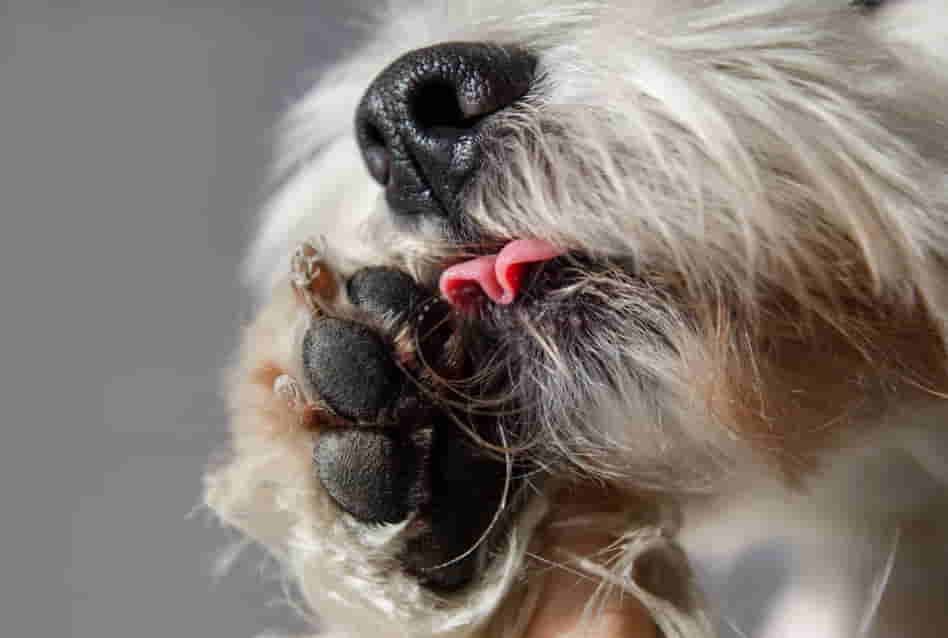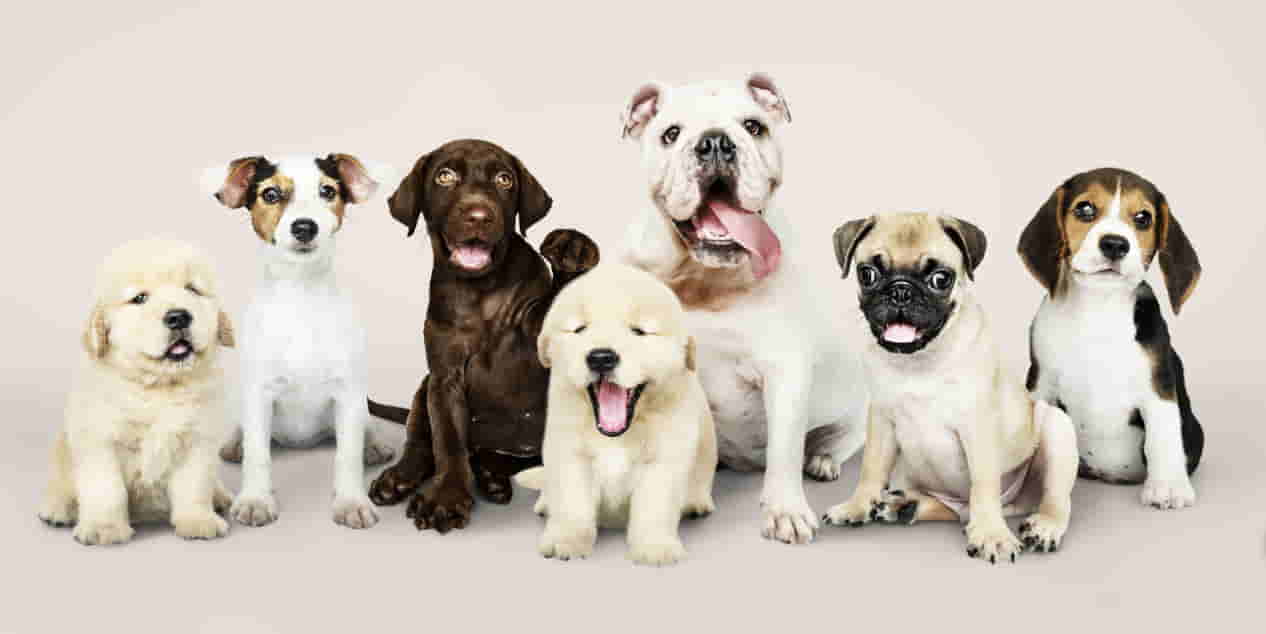How to stop dog from licking paws? It’s common for dogs to lick, well, their paws. And occasionally it’s normal. This might be harmless, like grooming themselves. But if your dog licks a lot, it could be instead by a sign that something is wrong.
Whether the cause is injury, boredom, it is important to get to the bottom of it. Untreated, excessive licking could turn to infections or irritations.
Here’s what you need to know about why dogs lick their paws, when it’s an issue and a few home remedies that might bring your furry pal some relief.
Table of Contents
Reasons Why Dogs Lick Their Paws
Injuries
A paw injury is one of the top reasons why dogs tend to lick their paws. They might have stepped on something sharp or hot, like a shard of glass or scorching pavement.
Sometimes, little things like splinters or bits of dry grass can get wedged between their toes, causing discomfort.
If you notice your dog favoring one paw or limping, it’s a good idea to check for cuts, bruises, or anything that might be stuck in their paw.
Allergies
Dogs can suffer from allergies just like we do! Certain foods or environmental factors, such as dust or pollen, can lead to itchy paws.
They often lick their paws to find relief, but this can actually make things worse. Here are some common allergy triggers to keep an eye out for:
Food Allergies like wheat, chicken, or eggs.
Environmental Allergies from pollen or mold.
Contact Allergies that come from materials in their toys or bedding
If you suspect your furry friend has allergies, your vet might suggest allergy testing or recommend specific treatments, like allergy shots.
Your vet might talk to you about allergy testing or recommend special treatments, like allergy shots.
Read also:
Infections
Bacterial or yeast infections can lead to burning, itching, and redness in your dog’s paws. When dogs lick their paws too much, it keeps them damp, creating a cozy environment for bacteria and fungi to thrive.
Additionally, fleas or parasites like hookworms can also cause that annoying itchiness. If you notice that your dog’s paw has a foul smell, appears red, or is swollen, it could be a sign of an infection.

Growths
Sometimes, you might notice lumps or tumors popping up on your dog’s paw. At first, they can be pretty easy to miss, but your furry friend might start feeling uncomfortable.
Older dogs are especially prone to developing growths or even arthritis, which can lead to them licking their paws more than usual.
If you see your dog limping or favoring one paw, it could be a sign that something’s not quite right.
Behavioral Concerns
If there’s no physical issue causing the licking, your dog might just be bored, stressed, or anxious. Think of paw licking as their way of finding comfort.
Unfortunately, this can lead to a condition known as acral lick dermatitis, where all that licking irritates and damages the skin. Over time, it can result in painful sores.
Lack of Exercise or Stimulation
If dogs don’t get enough exercise or mental stimulation, they might pick up some not-so-great habits, like licking their paws. To keep them happy and healthy, they really need a variety of activities.
A simple walk around the block, some fun playtime with their favorite toys, or even tackling a puzzle toy can help curb those unwanted behaviors.
What To Do If Your Dog Is Licking Their Paws
First things first, take a good look at your dog’s paws. Check for any cuts, redness, scratches, or anything that might be stuck between their toes. And don’t forget to check the nail beds and both the tops and bottoms of their feet.
If everything looks fine but your pup just won’t stop licking, it’s a good idea to reach out to your vet. They can perform a thorough health check and help identify any underlying issues like allergies, infections, or growths.
Home Remedies For Dogs Licking Paws
You can try home treatments to help soothe your dog’s paws after talking to the vet. These remedies can address itching, dryness, or irritation at home.
For Dry or Cracked Paws
Apply a gentle paw balm or coconut oil to moisturize and protect rough, cracked paws. These solutions are safe and can soften dry paw pads over time.
For Yeast Infections
To create a soothing solution, mix together 3 parts water and 1 part apple cider vinegar. Just be sure it’s not too concentrated.
Let your dog’s paw soak in this mixture for about 5 to 10 minutes. Once that’s done, rinse it off with clean water and make sure to dry it thoroughly.
For Itchy Paws
Oatmeal soaks can work wonders for those itchy paws! Just crush some plain oats into a fine powder and mix it with warm water.
Let your dog stand in this soothing mixture for about 10 to 15 minutes. After that, give their paws a good rinse and dry them off thoroughly.
Other Tips
- Use pet-safe wipes to clean your dog’s paws after walks.
- Keep their nails trimmed and paws clean to avoid irritation.
- For biting or extreme licking, apply a bitter spray (approved by your vet) to discourage them.
- If they won’t stop, you might need a cone to protect the area from more damage.
Behavioral Solutions
If your vet has ruled out any health problems, your dog’s licking could be a sign of boredom or anxiety. Here are some fun ideas to keep them entertained:
- Take your dog on extra walks or play a game of fetch.
- Provide them with chew toys or puzzle feeders to keep their minds active.
- Stick to a consistent routine! Dogs feel more at ease when they know what to expect.
- Consider using calming aids like pheromone sprays or anxiety-reducing collars (just check with your vet first).
- Avoid yelling or punishing your dog for licking. Instead, gently redirect their focus by offering a toy or engaging in a game.
When To See The Vet?
When your dog starts licking, try not to yell or punish them. Instead, gently guide their attention elsewhere by giving them a toy or playing a fun game together.
Final Thoughts
Excessive paw licking can be more than just a nuisance; it might indicate an underlying health issue or even stress.
By trying out these home remedies for your dog’s paw care and being attentive to their needs, you can help them feel more at ease.
It’s always a good idea to keep the lines of communication open with your vet to make sure your furry friend stays healthy and happy.
Your dog truly deserves some relief and care, and just a bit of attention can make a world of difference in tackling their paw-licking woes! For more information visit remedyu.com.
